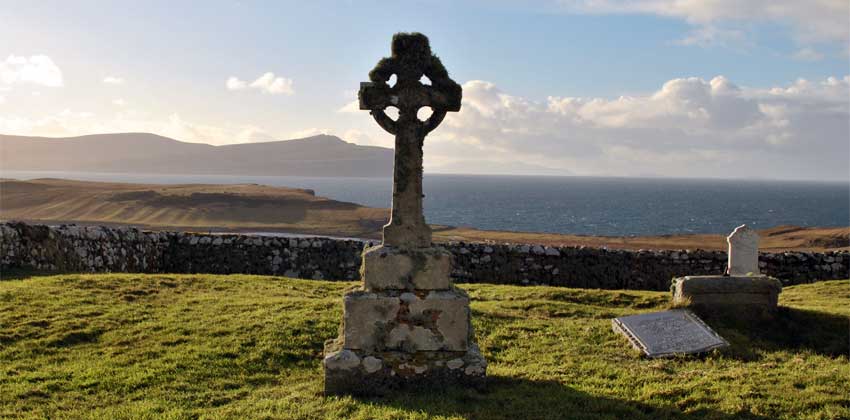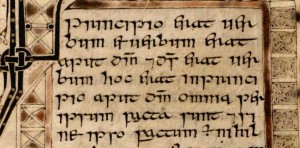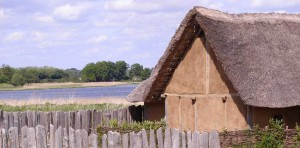11th Century Alba – Religion in Transition
Religion in 11th century Moray was a mix of traditions – an early Celtic monastic tradition with its roots in St Columba and Iona and a later Roman tradition with a focus on hierarchy in the form of episcopacy headed by bishops.
Buildings and Books
Because early church buildings were small and timber built, and also because other material remains and documentary records are sparse, the history of the medieval church is not well understood. The Vikings didn’t help either – their attacks disrupted church activities and destroyed records. In Moray, the principal churches were probably at Kinnedar, Birnie and Spynie but we really don’t know much about the church in the 11th century.
- Book of Deer (Detail)
- House Reconstruction
One delightful treasure from the early church is the so-called Book of Deer. This is a 10th century illuminated manuscript from the Monastery of Deer in Aberdeenshire. The manuscript was annotated in Gaelic in the 12th century, some of the earliest examples of written Scots Gaelic.
Power and Influence
Political power and religious authority were closely connected and many churchmen would have been both administrator and cleric. Patronage, often in the form of lands, was essential for the church and cemented links between the political and ecclesiastical elites. Macbeth is known to have given grants to a Culdee community.








